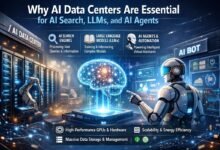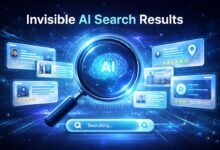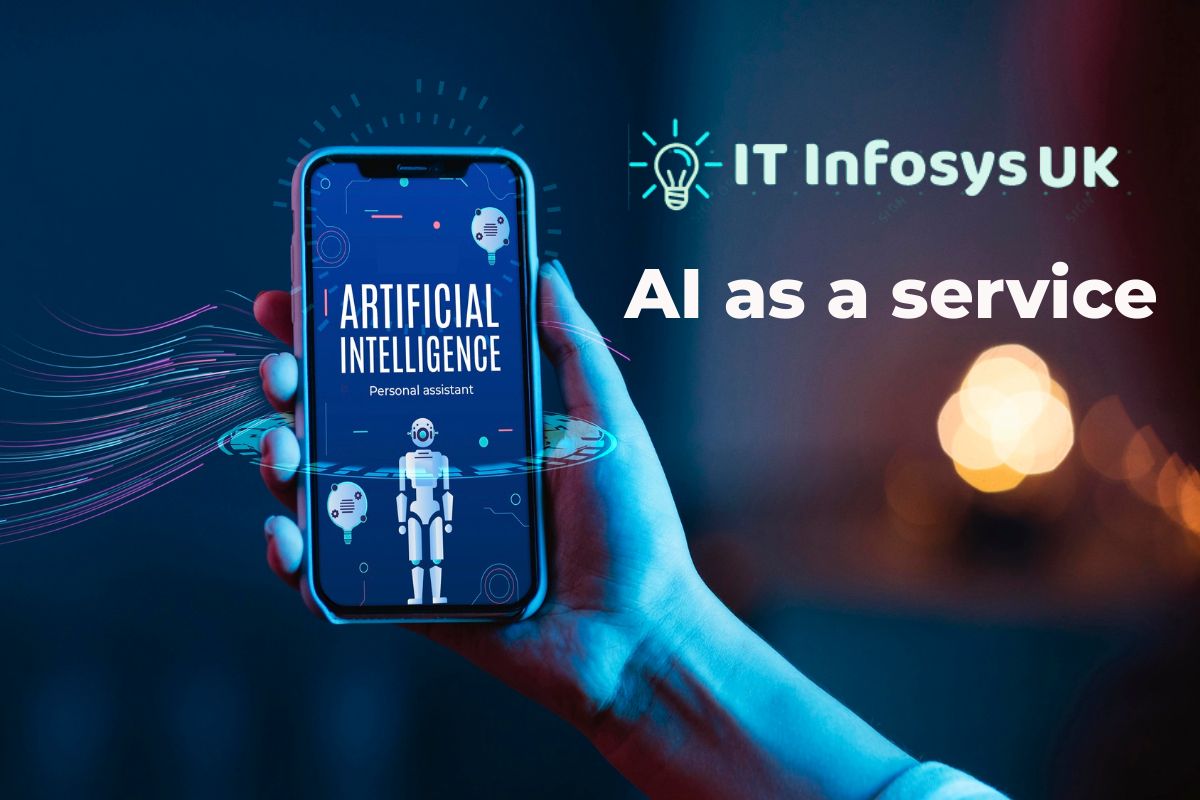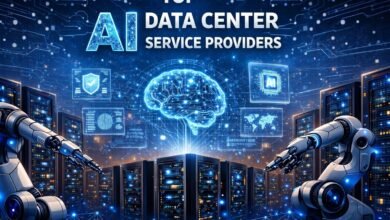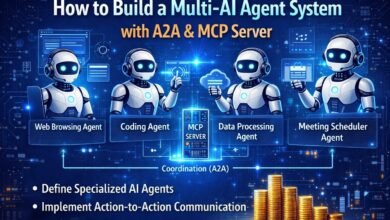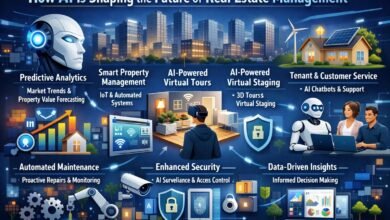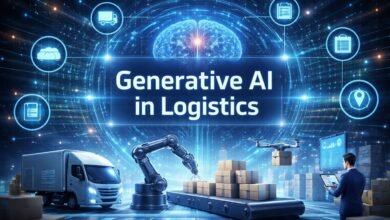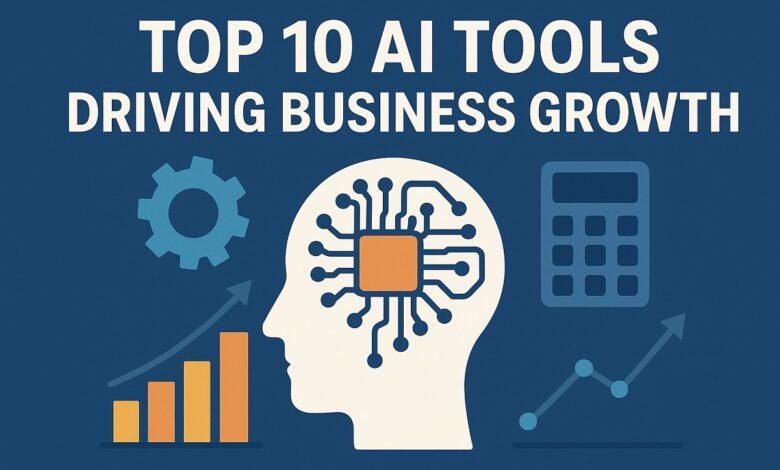
Artificial Intelligence (AI) is no longer a futuristic concept—it’s an integral part of today’s business strategy. Across industries, organizations are leveraging AI tools to automate processes, enhance customer experiences, and make data-driven decisions that boost productivity and profitability.
From marketing automation to predictive analytics, AI technologies are empowering businesses to stay ahead of the competition. In this comprehensive article, Published By AI Development Company India will explore the top AI tools that are driving business growth and transforming the way companies operate in 2025 and beyond.
AI Tools Revolutionizing Business Efficiency
AI tools have become essential assets for optimizing operations and improving decision-making. They help businesses analyze massive datasets, automate routine tasks, and uncover actionable insights that drive growth. Let’s dive deeper into the categories and features that make these tools indispensable in modern enterprises.
AI-Powered Marketing Automation
Marketing automation tools powered by AI are helping businesses personalize campaigns, predict customer behavior, and improve engagement across channels.
Customer Segmentation and Targeting
AI analyzes customer data to identify key demographics, behaviors, and interests. This allows marketers to tailor messages and deliver the right content to the right audience at the right time.
Predictive Campaign Optimization
AI algorithms evaluate campaign performance data and predict which strategies will generate the best ROI, helping businesses allocate budgets more effectively.
Chatbots and Conversational AI
Smart chatbots enhance customer interactions, providing instant responses, resolving queries, and nurturing leads around the clock without human intervention.
Content Generation
AI tools like Jasper and Copy.ai assist marketers in creating high-quality blog posts, emails, and social media content, saving time and maintaining consistency.
Email Automation and Personalization
AI-driven email marketing platforms use customer behavior insights to personalize messages, increasing open rates and conversions.
AI in Data Analytics and Insights
Businesses are flooded with data, but only AI-powered analytics tools can extract meaningful insights that drive smarter decisions.
Predictive Analytics
Predictive models use historical data to forecast future trends, helping businesses make proactive decisions in marketing, finance, and operations.
Natural Language Processing (NLP)
NLP enables tools to interpret and analyze unstructured data such as customer feedback, social media posts, and reviews to understand sentiment and emerging trends.
Real-Time Data Visualization
AI transforms raw data into interactive dashboards, making it easier for executives to monitor key performance indicators (KPIs) in real time.
Automated Reporting
AI tools like Tableau and Power BI generate insightful reports automatically, saving hours of manual data compilation and interpretation.
Business Intelligence Integration
AI integrates with business intelligence platforms to deliver deeper, contextual insights that align with strategic goals.
AI for Customer Relationship Management (CRM)
AI has redefined CRM systems, turning them from simple data storage tools into intelligent platforms that anticipate customer needs.
Lead Scoring and Prioritization
AI identifies high-potential leads based on behavior, interaction history, and engagement, enabling sales teams to focus their efforts efficiently.
Sales Forecasting
AI predicts future sales trends by analyzing historical performance and market conditions, helping businesses plan more effectively.
Customer Retention Analytics
AI identifies patterns that lead to customer churn, enabling companies to take proactive steps to retain clients through personalized offers or support.
Automated Data Entry
AI automates repetitive CRM tasks such as updating customer details and recording interactions, reducing human error.
Personalized Customer Engagement
AI uses customer data to craft tailored communications, boosting satisfaction and loyalty.
AI in Human Resources and Recruitment
Recruitment and HR management have become more efficient with AI solutions that streamline talent acquisition and employee engagement.
Automated Resume Screening
AI-driven platforms analyze resumes to shortlist candidates that match job requirements, speeding up the hiring process.
Candidate Matching Algorithms
AI compares applicant profiles with open positions to find the best fit, reducing recruitment bias and improving quality hires.
Employee Performance Analytics
AI tracks employee productivity, engagement levels, and satisfaction through data analysis, offering actionable insights for HR teams.
Learning and Development Recommendations
AI recommends personalized training programs based on skill gaps and career goals, promoting continuous learning.
Workforce Planning
AI predicts future workforce needs by analyzing trends, turnover rates, and company growth projections.
AI in E-Commerce and Sales Growth
The e-commerce industry has seen exponential growth due to AI tools that enhance personalization, streamline operations, and boost conversion rates.
Product Recommendations
AI analyzes user behavior and purchase history to offer personalized product suggestions, increasing sales and customer satisfaction.
Dynamic Pricing Optimization
AI adjusts prices in real time based on demand, competition, and market trends to maximize profits.
Inventory Management
AI predicts demand and automates restocking decisions, ensuring products are always available without overstocking.
Visual Search Technology
AI enables customers to upload images and find similar products instantly, improving the shopping experience.
Fraud Detection
AI systems identify unusual patterns in transactions to prevent payment fraud and protect customer data.
AI for Cybersecurity and Risk Management
AI tools are now vital in protecting businesses from evolving digital threats and ensuring data integrity.
Threat Detection and Response
AI continuously monitors network traffic to detect anomalies and prevent cyberattacks before they occur.
Behavioral Analysis
AI studies user behavior to identify suspicious activities that could signal insider threats or compromised accounts.
Automated Incident Response
AI reduces reaction time by initiating automated actions when threats are detected, minimizing potential damage.
Risk Assessment Models
AI evaluates security vulnerabilities and suggests appropriate measures to strengthen digital infrastructure.
Data Encryption and Compliance Monitoring
AI ensures data privacy and compliance with global regulations like GDPR and HIPAA through automated audits and alerts.
Conclusion
AI tools have transformed the way businesses function—automating repetitive processes, improving decision-making, and delivering exceptional customer experiences. From marketing and sales to HR and cybersecurity, AI’s influence spans every department. Organizations that invest in AI technologies today are not just streamlining operations but future-proofing their growth strategies. As AI continues to evolve, the gap between AI-powered and traditional businesses will only widen, making it crucial for companies to adopt these tools to stay competitive in the digital era.
